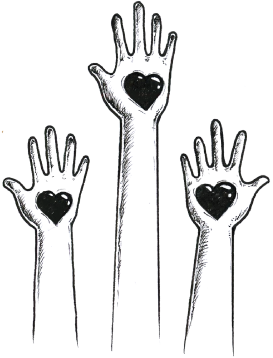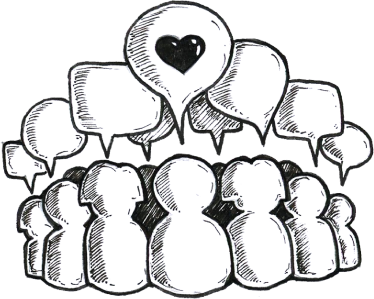August 11, 2023
The Latest SDG Report Cannot Say What Needs to Be Said
contributor: Erica Schoenberger
A global institution has its hands tied. Here are some of the things that the UN cannot say about reaching the Sustainable Development Goals and some things engineers need to think about if they want to make a difference.
The target date for reaching the UN’s Sustainable Development Goals (SDGs) was 2030. This deadline will not be met.
The SDGs were announced in 2015 calling for large-scale, concerted efforts to bring low-income countries (LICs) up to an adequate level of attainment across 17 categories> These include poverty, health, water and sanitation, education, gender equality and others. The most recent report by the Sustainable Development Solutions Network (written for the UN) is also the most thorough and probing report available, and it states flatly that the SDGs “are seriously off track – with the poor and highly vulnerable countries suffering the most.”
The report is painful to read not only because we are failing spectacularly to achieve the goals, but also because this belongs to a genre of international institutional writing that cannot say what needs to be said. This is for political reasons that are not, actually, invalid at an institution such as the UN where no governments can be held to account.
You should understand that this is a very good and serious version of the genre. It cannot, however, go much beyond identifying in a general and restricted way some of the causes of this lack of progress; it cannot do much more than propose lists of some of the things that we should and must do.
The report identifies governance and finance as the critical issues. The first has to do with the inability of international institutions to enforce commitments to the SDGs at the national level. Finance includes a fatally inadequate level of financial support from developed countries but also the way the international financial system works to disadvantage poor countries. Accordingly, the report calls for a huge increase in funding from national governments as well as from multilateral financial institutions and an overhaul of what it calls the Global Financial Architecture, especially with regard to debt. It also calls for more philanthropic commitments from ultra-high net worth individuals – think Gates, Bezos and Musk.
These are all absolutely the right things to do, but it is difficult to see where the leverage is going to come from to make them happen. In any case, some important things are left out of the analysis.
It takes two to corrupt, and developed countries are major players.
Definitely we should ask from bigger contributions from rich nations and rich people, but let’s also think about pervasive corruption that drains massive amounts of resources – of genuine wealth – from poor countries. Very poor countries have very rich people in them who have gigantic Swiss banking accounts, superyachts and penthouse apartments in New York skyscrapers. Moreover, it takes two to corrupt and developed countries are major players in various ways.
Let’s also think about multinational corporations that make staggering profits pulling resources out of poor countries while leaving behind environmental messes, and while working closely with corrupt governments.
Let’s also think about the global arms trade which drains away a huge amount of money that could be used to address the SDGs. It is also a hotspot of corruption.
The global arms trade drains away a huge amount of money that could be used to address the SDGs.
It’s impossible to know for sure, but I’d guess that these drains on resources are considerably larger than the amount of SDG money coming in to many low-income countries. Overhauling the global financial system is, to say the least, a big challenge. So, too, are stemming corruption, a more equitable division of profits and curbing the arms trade, but there may be more points of leverage to promote change.
A radical commitment to transparency is the key here. Transparency in banking would make it harder for the corrupt to hide behind bank secrecy laws or in offshore tax havens; it would expose them to their own people – not a comfortable place. There are reasons why we have not done this already – many people and countries make money out of secrecy. Nevertheless, the issue is smaller and plausibly more tractable than restructuring the international financial system. You don’t have to get the entire world to agree. The banking havens will fight tooth and nail against greater transparency, but they need us more than we need them. We haven’t thrown our full weight into the discussions and the US has a lot of weight. American courts have been able to dictate terms to sovereign nations such as Argentina as they try to resolve financial crises. If the G7 decided that banking transparency was a necessity, we would make progress.
A radical commitment to transparency is the key here.
Transparency in multinational corporate investment and payments to foreign governments and leaders would also make a big difference. People in the ‘host’ country would be able to see where the wealth is going and perhaps do something about it. Requiring disclosures of this sort would actually help companies resist unethical and unlawful demands. Similarly, seeing exactly how much of a government’s budget is going to weapons as opposed to, say, education or health might prompt some much-needed debate.
What can you as engineers do about all this? I’ve been teaching engineering students for a long time. I was glad to discover that so many want to use their engineering skills to make the world a genuinely better place – more just, more sustainable, more humane. But to do that requires great engineering skills and some understanding of how the world works, how poor people survive despite everything, how to make sure that the benefits of your engineering intervention go to the right people and a lot of other things. The undergraduate engineering curriculum doesn’t give you a lot of time to develop these understandings, but you can find ways to get there.
Make sure that the benefits of your engineering intervention go to the right people.
Here’s a project: write a shadow report to the one discussed here in which you give an engineering appraisal of the prospects for attaining the SDGs and what needs to be done that could be done. You are engineers – this is one of your superpowers. You could also talk about the things that can’t be talked about. Corruption is one that I pay attention to, but the field is wide open. Look for ways to connect with people who aren’t engineers but share your goals. Non-engineers don’t really understand what engineers do or how to start a conversation with them. You may have the same problem in reverse, but try it out. In my experience, it works much better than anyone expects.
Do more: How Engineers Can Engage More Effectively in Public Policy
About the Author
Dr. Erica Schoenberger is a professor of environmental health and engineering at Johns Hopkins Whiting School of Engineering.
An economic geographer and environmental historian, Dr. Schoenberger is the author of Nature, Choice and Social Power, which explores how different forms of social power, including the power of markets, create and sustain pollution problems. Her current research delves into the origins of capitalism. Schoenberger was awarded a 2020 Guggenheim Fellowship for this book, a recognition of achievements and exceptional promise in scholarship or creative arts.
tags : financial sustainability, SDGs




